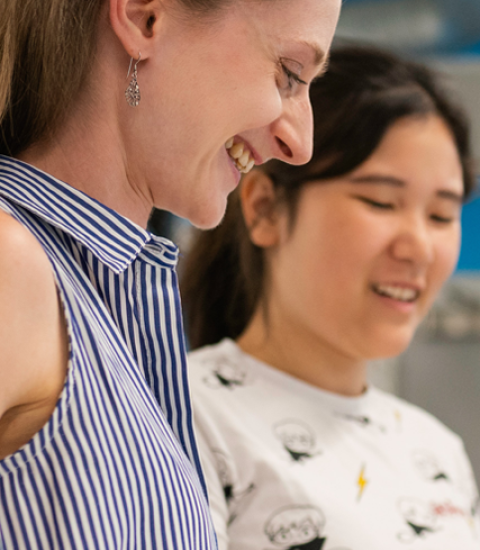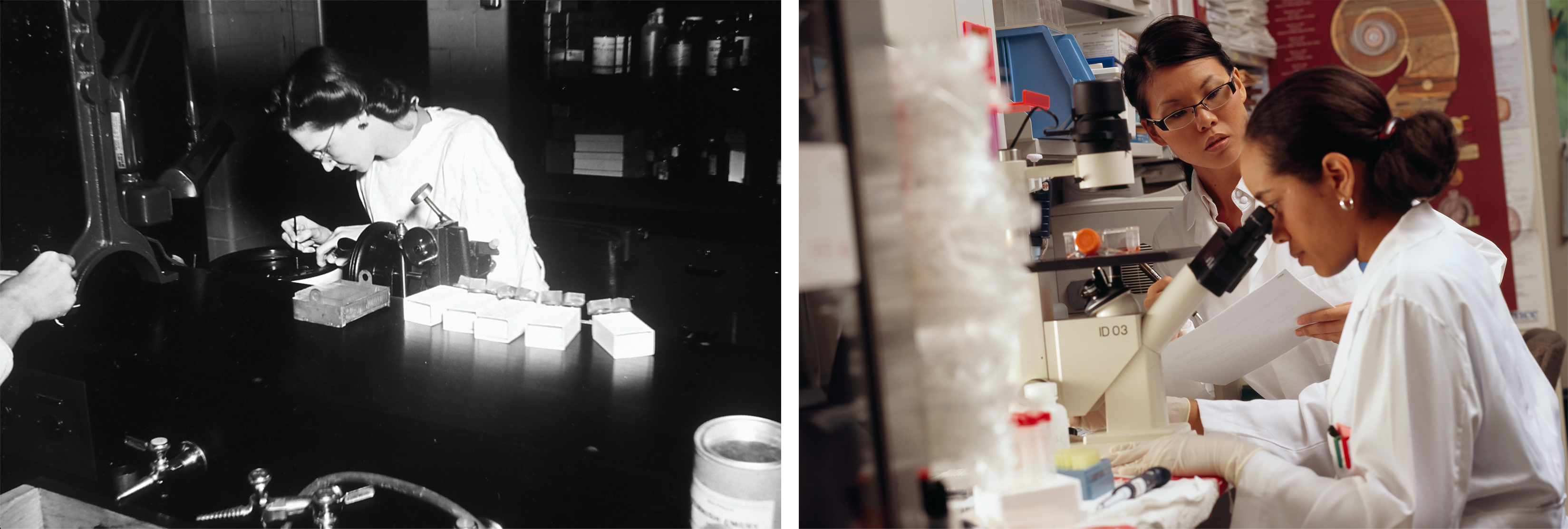
By Lauren Grieco, IOS Press, Amsterdam, NL
For the UN’s 8th International Day of Women and Girls in Science (IDWGIS), IOS Press delves into why the day is vital to advancing gender equality in science as well as the STM publisher’s initiatives that are under way to encourage gender equality in the realm of scientific publishing. On the latter, Karen Jacobs, the Editor-in-Chief of WORK Journal, shares her perspective as a woman taking the lead in science.
What is IDWGIS and why is it important?
Standing for the International Day of Women and Girls in Science, IDWGIS was created by the United Nations (UN) General Assembly on 22 December 2015 to recognize the critical role women and girls play in science and technology, through Resolution A/RES/70/212. Celebrated every year on February 11, this day is of importance as it brings to the attention of the world that there is still a significant gender gap in all levels of science, technology, engineering and mathematics (STEM) disciplines.
A core issue for the UN, gender equality – and the empowerment of women and girls – is integral to achieving the 2030 Agenda for Sustainable Development. To make progress in all of the Sustainable Development Goals (SDGs), more manpower is needed, and in this case, (wo)manpower is how we can collectively rise to take on the challenges facing our world. Women and girls are vital to broaden the pool of researchers, bringing with them their diverse perspectives, talent and creativity.
On 14 March 2011, the Commission on the Status of Women adopted a report at its 55th session, with agreed conclusions on access and participation of women and girls in education, training and science and technology, and for the promotion of women’s equal access to full employment and decent work. On 20 December 2013, the General Assembly adopted a resolution on science, technology and innovation for development, in which it recognized that full and equal access to and participation in science, technology and innovation for women and girls of all ages are imperative for achieving gender equality and the empowerment of women and girls.
Especially in the STEM disciplines, a significant gender gap persists on the global stage. While women have successfully increased their participation in higher education, they remain under-represented in the fields as professionals. According to the UNESCO Science Report, "only one third of researchers in the world are women. While parity has almost been achieved in the life sciences, it is still a long way off in many sectors of growing importance. For example, women represent only 22% of the workforce in the field of artificial intelligence" [1]. In fact, of the 3 million papers published over the course of half a century, it was determined that women would need until the year 2100 to achieve parity for output in computer science [2].
Photo by ThisisEngineering RAEng on Unsplash
What is IOS Press doing to advance women in the field of science?
IOS Press is working to set specific targets, with initial priority relating to SDG 5 (gender equality) and SDG 10 (reduced inequalities) in terms of diversity. We work with our journal editors to assess board membership in relation to gender and diversity. To incentivize our journals’ development towards equality, we assess information relating to authors and editorial boards. We utilize our linked data platform LD Connect to determine a wealth of geographic analytics across all our journals. Information will soon be available on the individual journal pages. See our regular updates on the SDGs page.
IOS Press's Stance on Diversity and Inclusion
As a publisher, IOS Press is committed to promoting and enabling equal opportunity for all, regardless of gender identity, national origin, race, ethnicity, religion, sexual orientation, age, or disability status. We actively work on expanding our actions and more effectively promoting access and publishing opportunities for under-represented groups. Editors-in-Chief of our journals are invited to add their support to this process and commit to this Diversity and Inclusion statement, expanding inclusivity actions to their editorial boards, reviewers, and authors. To support this initiative, contact us today.
Research reveals that women are often under-represented at journal editorial board level [3] and in the peer-review process [4]. At IOS Press, we invite editors to consider whether any actions could be taken for their journals. Examples of actions for balancing gender representation on boards include, but are not limited to:
- Considering gender equality among editorial board members when inviting experts to join the editorial board of a journal, especially in senior positions
- Where possible, aim for a gender balanced panel of reviewers; aim for an equal number of female and male reviewers
- Considering gender-focused special issues (guest editors and commissioned authors)
- Taking gender into account when identifying guest editors and authors for editorials and commentary pieces, to create a platform for more balanced and diverse voices
- Promoting professional growth within the journal, creating opportunities for junior researchers to grow into senior board members
- Engaging in a regular review and making this an ongoing conversation

[L] A scientist preparing tissue for histological study in 1950 and [R] scientists collaborating in modern times. Photos by National Cancer Institute on Unsplash
As a woman in science, WORK’s Editor-in-Chief weighs in
When asked about the importance of IDWGIS, Karen Jacobs – WORK Journal’s founding Editor-in-Chief – believes that although women are contributors to science, they are under-represented in important roles as professors at universities, members of Editorial Boards for peer-reviewed journals [5], participants in the peer-review process [6], tend to have shorter, less well-paid careers, are under-represented as authors of articles published in high-profile journals, often passed over for promotion, and are awarded smaller grants [7]. Jacobs is optimistic that the UN’s creation of the International Day of Women and Girls in Science will bring greater awareness of the need for an increased role for women in the sciences and for actionable steps to be taken in order to close this gender gap. Jacobs exclaims: “we need to change this narrative by starting with our girls. We must make a commitment to empowering our daughters, granddaughters, and other girls to choose careers in STEM, and enabling them to enhance their impact through advocacy, negotiation, and communication skills.”
Throughout the years of her career as an occupational therapist, ergonomist, and the Founding Editor-in-Chief of WORK, Jacobs has advocated for sustainable practices in the scholarly ecosystem and acted as a champion for SDGs. As the publisher of WORK, IOS Press is committed to developing and building its own sustainable practices to support the SDGs, with targets and actions established through a dedicated working group (IOS Press, December 2020). On behalf of WORK, Jacobs has expressed her support for IOS Press's actions relating to these SDGs and emphatically commits to its diversity and inclusion statement WORK has been and continues to be predominantly women (62.5%), which breaks the trend for the majority of IOS Press journals and other journals globally. Jacobs states: “although this is a start, much more is needed.”
